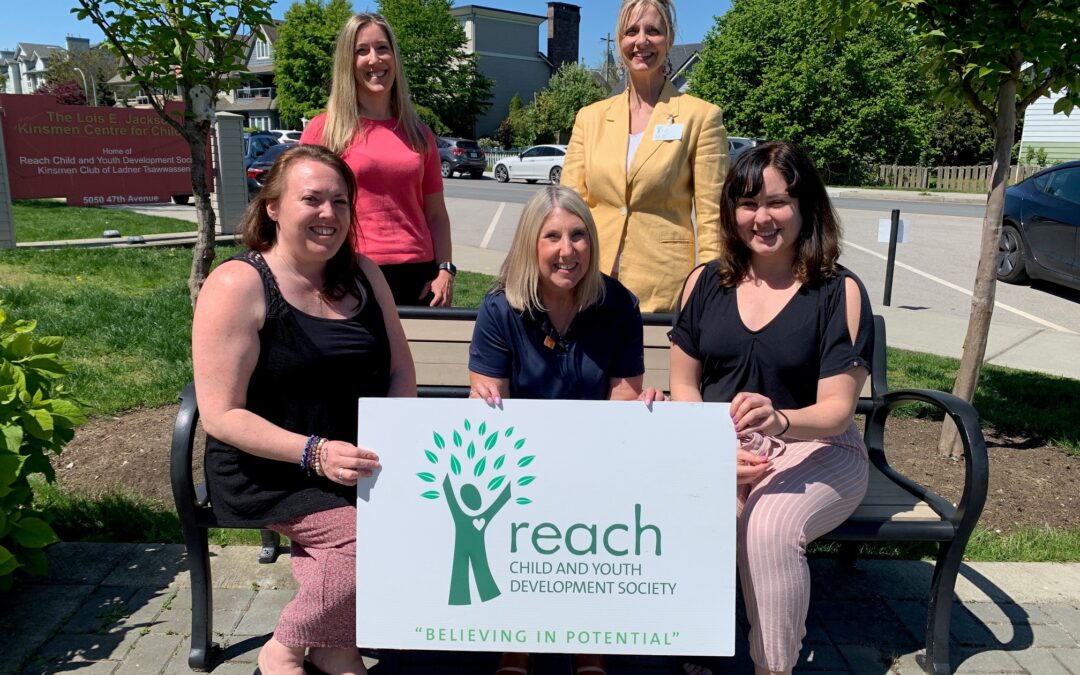In 2020, FortisBC made an initial three-year commitment to fund REACH SibShops program. This year, they extended that commitment for three more years. “The “FortisBC SibShops” Program now runs once a month from September to June,” notes Camille Netherton, REACH Associate Executive Director. “Knowing that we have FortisBC’s support for three more years makes a huge difference in terms of planning and organizing. Both the staff we hire for the program, and the families we’re serving have the comfort of knowing this is not a temporary program.” Waitlists for some of the government-funded behaviour support programs for children and youth with special needs can be extremely long. For families without the tools or resources to help their special child, the wait for help can be painful. When REACH became aware of the long waiting list, they developed a short-term program called Positive Connections, together with the Ministry for Children and Family Development, to help bridge the gap.
“One of the things I love about REACH is how responsive we are to the communities,” says Camille. “Positive Connections was developed at a time when there was a long waiting list for behaviour support programs – and there is still a long waiting list, so it’s needed just as much now as before.” Positive Connections is an intensive positive behavior support program for the whole family. It has three components: group learning for parents; in-home visits with a behaviour consultant; and SibShops, a program for siblings of children that have special needs diagnoses. “With funding from FortisBC, we were able to expand SibShops beyond the summer day camp program that we run in July and August, and make it a year-round program,” says Camille. “SibShops is so important because often siblings become caregivers later in life or have a lot of responsibility for helping the family with the child with the diagnosis,” says Camille. “We felt those kids needed some support, needed to feel connected and needed to know that they’re not alone.”
“In the program, we hear kids say things like ‘I thought I was the only person who had a special sibling’ or, ‘I know my mom and dad love me, but they don’t spend much time with me because my sibling needs a lot of their attention’. And we also have kids come in who are afraid of their special sibling. It’s amazing to see how much they learn through the program in a short period of time, and how much their attitudes shift towards becoming more understanding, loving and generous toward their sibling than they were before.”
In 2023, Fortis BC provided REACH with funding for a new program to support sc̓əwaθən məsteyəxʷ (Tsawwassen First Nation) families. “We like to take an integrated and inclusive approach to community investment,” says Joanne Hunton-Sehdev, Community & Indigenous Relations, Fortis BC. “We explore all aspects of a community and look for ways we can boost collaboration between groups by providing additional support. The FortisBC for Families Program will also provide that extra support for sc̓əwaθən məsteyəxʷ families.” Camille explains why the FortisBC for Families Program is so important and how it will work: “We’ve had our Reconciliation Action Plan at REACH for several years. We’re committed to learning, growing and doing our part towards Reconciliation. That includes being guided by our Indigenous partners to make sure that we’re assisting the Indigenous community in ways that’s meaningful to them.”
“This year, the FortisBC for Families funding will support a designated REACH behaviour consultant for Indigenous Communities to address potential cultural barriers which can limit access, critical services and supports. This program also provides education, planning and in-person support for children with extra needs and their families in partnership with sc̓əwaθən məsteyəxʷ.” “Before we had the FortisBC funding, this program wouldn’t have been possible,” Camille explains. “We just didn’t have the means to do it. Having FortisBC’s community support now gives us the flexibility to be responsive to the sc̓əwaθən məsteyəxʷ community.”
Photo L:R Jeanette Trombley, Angela Ruel, Joanne Hunton- Sehdev, Tamara Veitch, Tassia Pickard
Courtesy Deborah Alden, Writer/Researcher Fortis BC


